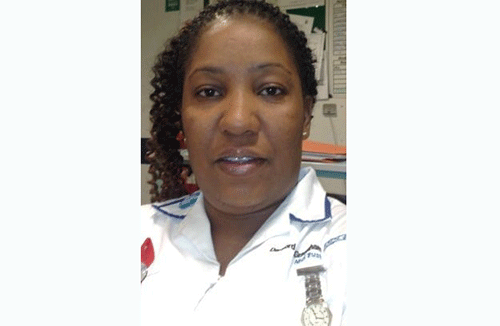Irene Kauzuu
Alcohol intake has become a public health issue not only in Namibia but worldwide. Namibian alcohol availability and trading hours and the mushrooming of shebeens are disturbing. Still, the most horrifying matter is that even learners have easy access to alcohol and can afford these cheap, 40% alcohol Angolan sachets that are being sold illegally on the streets at any time of the day and anywhere.
Apart from the antiquated Liquor Act of 1998, Namibia lacks a strict national alcohol policy or a substance abuse bill to protect and control alcohol consumption among children.
On 27 January 2022, The Namibian reported that six grade nine students and one grade 10 student at a school in Kavango East were found with sachets of Angolan whisky on the school grounds. The illicit alcohol is said to have entered Namibia through the Angolan border at Calais.
Alcohol consumption is said to be an emerging social problem among Namibian adolescents, with one study by Barth and Hubbard (2009) estimating that 53.5% of youths aged 13 to 30 use alcohol, including 11% of girls and 18% of boys between the ages of 13 and 16, while 28.4% use alcohol at least once a week and 6.8% use alcohol daily. A 2002 baseline survey on alcohol and drug use in Namibia found that 65% of respondents agreed that alcohol was easy to get into their communities and that 3.5% of youth consume alcohol.
The worst part is that most people under the age of 18 already consume large amounts of alcohol or binge drink at public gatherings.
Babies are born with foetal alcohol spectrum disorders (FASDs), which occur in people who were exposed to alcohol before birth. Alcohol consumption among Namibian children is a significant problem, contributing to many daily social issues. To pass the time, children and youth turn to alcohol and drugs. Because they prioritise alcohol trading and consumption over their children’s future, bar owners, alcohol vendors, and alcohol-drinking parents contribute to child neglect, child abuse, and child disabilities.
Strict alcohol regulation is needed to protect a Namibian child against alcohol consumption, abuse, and harm. Children and adolescents engage in anti-social behaviour because they lack resources and recreational activities, and as a coping mechanism, they tend to engage in binge drinking as a form of entertainment.
Children with social anxiety, personality disorder, and depression consume alcohol as a form of self-medication, and because of the availability of alcohol in public places and at social gatherings, children buy alcohol with a few constraints.
Another issue is selling homebrewed beer in homes that contain small children. Children are being fed and exposed to those homebrewed beers at very young ages, and they become addicted to or normalise those beers. Home-brewed alcohol is not formally regulated, and making it normal to consume alcohol at home is very bad for children. The Namibian of 17 January stated that studies show that homebrewed beer accounts for 67% of the total alcohol consumption in Namibia.
The government has to take responsibility and guide to protect the Namibian child from alcohol-related harm, and that is only possible by regulating the bill, creating alcohol reduction awareness, controlling alcohol availability, increasing the alcohol age restriction from 18 to 21, including alcohol-related sessions in Life Skil’s curriculum at schools and engaging communities and youths for workshops to educate them on the negative impacts of alcohol intake on children.
Is there a World No Alcohol Day? What does the Namibian government do on this day regarding alcohol? Not only is alcohol a personal choice, but alcohol-related issues are one of the key contributing factors to poor health, education, and economic systems and their negative impacts on a country, and we hope the government will consider commemorating our loved ones who died from alcohol-related issues this year on 2 October 2023.
The Southern African Alcohol Policy Alliance (SAAPA) Namibia, media outlets, and public health NGOs can conduct awareness campaigns, provide education, and even publish evidence-based studies on alcohol-related issues to reduce alcohol use, but without the full support of the government, our children are becoming part of an alcoholic society.
It is 2023, and SAAPA Namibia will never be exhausted in its fight for the regulation of national alcohol policy, the provision of awareness and education on the implications of alcohol consumption and its social impacts, as there is a massive need to discourage alcohol use among school-aged children as a method of combating HIV/AIDS, road traffic accidents, teen pregnancies, other risk-taking behaviours, and early exposure to alcohol intake among children.
Say no to responsible drinking, say no to moderate drinking, and stay sober! A sober nation is a healthy nation.
*Irene Kauzuu is the SAAPA country liaison officer.


